Hi all! Wow, it's been quite a summer with school starting this week, getting doctor's checkups, and awaiting a potential tropical storm that hit the Caribbean this morning.
So, a bit of big news: the anthology She Walks in Shadows is coming out in October, but pre-sales have hit the 200 mark for orders and has received positive press. In addition, Expanded Horizons accepted my short story "The Castle's Women," and I will post the link when it's online.
Recently The Mary Sue did a short article on the She Walks in Shadows anthology, commending Silvia Moreno-Garcia's goals for taking on such a project. Some of the comments, however, were concerned about the fact that Lovecraft was a notorious racist in addition to being a misogynist, completely missing the point that She Walks in Shadows specifically asked for stories from POC authors as well as female authors. Garcia had to step into the comment thread to explain this fact,
Then some people took Garcia to task for creating a woman's only anthology, and she blogged an FAQ info-post discussing the issue, as well as her refusal to apologize for being a "little bitch" in response to one angry email. Garcia handled the insult with grace, and explained that she wanted to create a space to showcase the "girls that play with squids," to paraphrase what she writes. I was rather insulted on Garcia's behalf that someone would take the time to insult her for adding creative democracy to the mythos, and I could not understand why people would want to cling to their idea that a space for female fantasy and horror writers wasn't needed.
Lovecraft has a tainted legacy, because while the man had remarkable ideas regarding great evils we cannot comprehend, not to mention a massive generosity for his friends and fellow writers, he was a racist. I didn't discover him directly or the admiration that my favorite authors like Neil Gaiman seemed to apply to him, though I like what he inspired in other people, and how he could make seemingly ordinary objects like a color terrify his readers. No massive obsession occurred, or an instant passion from reading the man's words; in fact, I had to slug through them and labor through the stories.
Then I talked to a librarian on Friday, mentioning the anthology. We've known each other for years, sharing a mutual love of comics and fantasy. I mentioned the fuss going around the anthology, and admitting I don't like Lovecraft the person (more on that below). The librarian then remarked on how Lovecraft was a product of his times, and that Edgar Allan Poe, who I preferred, wasn't raised by three maiden aunts. He then said something interesting:
"I related a lot to Lovecraft growing up. He never really aged past the age of fifteen."
At the time I couldn't wrap my head around the concept, especially since this year my anger about racial injustice has increased, but later I was able to ponder the matter. As someone who likes to read on author's lives, I like to see how other writers developed their methods, to see what worked for them and how they worked on their stories. The thought of Lovecraft creating a connection with his audience made sense, given that if he hadn't written words that made an impact, then he wouldn't have been considered the father of cosmic horror.
Cosmic horror, as it was explained to me, is about the horror of facing creatures and a universe larger than us, of seeing human beings as mere ants compared to the fathoms that our naked eyes can only witness. I misinterpreted this as my usual apprehension that comes when watching the stars and picturing how asteroids as large as mountains can crash into the ocean and cause catastrophic tidal waves. I had to do further research to understand that the concern involved encountering clever monsters as large as mountains that took over our minds and hearts. To be honest, the idea doesn't scare me because the idea of our sun blowing up or an asteroid crashing into the oceans seems more plausible than giant tentacles invading our minds.
I gained more respect for cosmic horror after reading other takes on it. A Sherlock Holmes anthology had two stories featuring the Old Ones, and how they instilled horror in Watson during one tale, and inspired honor and duty in Sebastian Moran in another. The horror wasn't real to me before, but it became real. I was able to develop healthy respect, while wondering why the Old Ones had to be evil and conquering by default.
"The Opera Singer," which I wrote for She Walks in Shadows, was thus challenge because, though I have gained respect for the mythos, I do not like Lovecraft. His prose is too dry for me, and the only story I liked-- "The Color out of Space"-- worked because the idea of a color on the spectrum that could kill people was enthralling. All of the "Old Ones" were demonic, and the title character in "The Dunwich Horror" never had a moment where we saw his perspective. Surely space squids existed on a spectrum of black and white, where they varied in what they wanted, and the Old Ones wanted more than to take over the minds of men and lure them into slavery. The story and novel exist as democracies, in that each character gets a chance to tell his, her, or its story; Lovecraft horror decreed that the Old Ones have to be evil because they desire to take over the minds of men, and that someone like Wilbur Whateley never got a chance to demonstrate different facets because his author wanted to assure the reader that Wilbur was evil and not properly human.
Image source: https://farm4.staticflickr.com/3213/3115958547_32927d3de2_z_d.jpg?zz=1
With that in mind, the creature that does exist in "The Opera Singer" does not consider itself evil because it exists on a spectrum above petty humanity, as the title character grows old and slowly deprived of the world's luxuries, like basic kindness or nostalgic places. The woman who inspired my black main character, I encountered her walking and pushing her own wheelchair, and she told me how she used to sing in opera and how now she couldn't go to her favorite practice room because of regulations. She stayed with me, up until the prompt for She Walks in Shadows went up and asked for tales. I wrote the story to ponder on how people change before our eyes, but because we blink so many times we hardly notice since the changes are small and incremental.
Being able to tell these stories with the Lovecraft mythos is important, to expand on the characters previously deemed "monsters" and "horrors," whether or not they were cosmic horrors or black-faced,"apelike" stereotypes. We need to reclaim that space to show that we can move past Lovecraft's times and his issues, while adding more good to his legacy. Reclaiming does not mean that we oust his original prose, or threaten his fanbase; rather, we create a safe space that can coexist with previous canon.
Image source: https://farm8.staticflickr.com/7011/6808988379_ebdaf2963b_z_d.jpg
So yes, I may not play with galactic squids the way other authors do, but I enjoy being included in the fun. If someone thinks that a woman doesn't have the right to create her space, or to participate in one when the field is primarily dominated by a protective majority, then I will most likely listen to that someone out of politeness and participate anyway. The writing arena is a democracy in that we share our stories equally, with different voices and perspectives. When a past error remains in one historic piece, then the only thing to do is to write a tale to counter it.
The space doesn't have a limit. Neither does the human mind. Let's fill both with varying perspectives to change racist legacies.
Image source: https://farm9.staticflickr.com/8528/8584275508_1f21299163_z_d.jpg
So, a bit of big news: the anthology She Walks in Shadows is coming out in October, but pre-sales have hit the 200 mark for orders and has received positive press. In addition, Expanded Horizons accepted my short story "The Castle's Women," and I will post the link when it's online.
Image source: https://farm4.staticflickr.com/3754/9816990715_8d989dee02_z_d.jpg
Recently The Mary Sue did a short article on the She Walks in Shadows anthology, commending Silvia Moreno-Garcia's goals for taking on such a project. Some of the comments, however, were concerned about the fact that Lovecraft was a notorious racist in addition to being a misogynist, completely missing the point that She Walks in Shadows specifically asked for stories from POC authors as well as female authors. Garcia had to step into the comment thread to explain this fact,
Then some people took Garcia to task for creating a woman's only anthology, and she blogged an FAQ info-post discussing the issue, as well as her refusal to apologize for being a "little bitch" in response to one angry email. Garcia handled the insult with grace, and explained that she wanted to create a space to showcase the "girls that play with squids," to paraphrase what she writes. I was rather insulted on Garcia's behalf that someone would take the time to insult her for adding creative democracy to the mythos, and I could not understand why people would want to cling to their idea that a space for female fantasy and horror writers wasn't needed.
Image source: https://farm1.staticflickr.com/102/254267186_34d90adcc7_z_d.jpg
Lovecraft has a tainted legacy, because while the man had remarkable ideas regarding great evils we cannot comprehend, not to mention a massive generosity for his friends and fellow writers, he was a racist. I didn't discover him directly or the admiration that my favorite authors like Neil Gaiman seemed to apply to him, though I like what he inspired in other people, and how he could make seemingly ordinary objects like a color terrify his readers. No massive obsession occurred, or an instant passion from reading the man's words; in fact, I had to slug through them and labor through the stories.
Then I talked to a librarian on Friday, mentioning the anthology. We've known each other for years, sharing a mutual love of comics and fantasy. I mentioned the fuss going around the anthology, and admitting I don't like Lovecraft the person (more on that below). The librarian then remarked on how Lovecraft was a product of his times, and that Edgar Allan Poe, who I preferred, wasn't raised by three maiden aunts. He then said something interesting:
"I related a lot to Lovecraft growing up. He never really aged past the age of fifteen."
Image source: https://farm1.staticflickr.com/26/40695488_ea72e0da8b_z_d.jpg?zz=1
At the time I couldn't wrap my head around the concept, especially since this year my anger about racial injustice has increased, but later I was able to ponder the matter. As someone who likes to read on author's lives, I like to see how other writers developed their methods, to see what worked for them and how they worked on their stories. The thought of Lovecraft creating a connection with his audience made sense, given that if he hadn't written words that made an impact, then he wouldn't have been considered the father of cosmic horror.
Cosmic horror, as it was explained to me, is about the horror of facing creatures and a universe larger than us, of seeing human beings as mere ants compared to the fathoms that our naked eyes can only witness. I misinterpreted this as my usual apprehension that comes when watching the stars and picturing how asteroids as large as mountains can crash into the ocean and cause catastrophic tidal waves. I had to do further research to understand that the concern involved encountering clever monsters as large as mountains that took over our minds and hearts. To be honest, the idea doesn't scare me because the idea of our sun blowing up or an asteroid crashing into the oceans seems more plausible than giant tentacles invading our minds.
Image source: https://farm7.staticflickr.com/6092/6315719137_7653a3f1e7_z_d.jpg
I gained more respect for cosmic horror after reading other takes on it. A Sherlock Holmes anthology had two stories featuring the Old Ones, and how they instilled horror in Watson during one tale, and inspired honor and duty in Sebastian Moran in another. The horror wasn't real to me before, but it became real. I was able to develop healthy respect, while wondering why the Old Ones had to be evil and conquering by default.
"The Opera Singer," which I wrote for She Walks in Shadows, was thus challenge because, though I have gained respect for the mythos, I do not like Lovecraft. His prose is too dry for me, and the only story I liked-- "The Color out of Space"-- worked because the idea of a color on the spectrum that could kill people was enthralling. All of the "Old Ones" were demonic, and the title character in "The Dunwich Horror" never had a moment where we saw his perspective. Surely space squids existed on a spectrum of black and white, where they varied in what they wanted, and the Old Ones wanted more than to take over the minds of men and lure them into slavery. The story and novel exist as democracies, in that each character gets a chance to tell his, her, or its story; Lovecraft horror decreed that the Old Ones have to be evil because they desire to take over the minds of men, and that someone like Wilbur Whateley never got a chance to demonstrate different facets because his author wanted to assure the reader that Wilbur was evil and not properly human.
Image source: https://farm4.staticflickr.com/3213/3115958547_32927d3de2_z_d.jpg?zz=1
With that in mind, the creature that does exist in "The Opera Singer" does not consider itself evil because it exists on a spectrum above petty humanity, as the title character grows old and slowly deprived of the world's luxuries, like basic kindness or nostalgic places. The woman who inspired my black main character, I encountered her walking and pushing her own wheelchair, and she told me how she used to sing in opera and how now she couldn't go to her favorite practice room because of regulations. She stayed with me, up until the prompt for She Walks in Shadows went up and asked for tales. I wrote the story to ponder on how people change before our eyes, but because we blink so many times we hardly notice since the changes are small and incremental.
Being able to tell these stories with the Lovecraft mythos is important, to expand on the characters previously deemed "monsters" and "horrors," whether or not they were cosmic horrors or black-faced,"apelike" stereotypes. We need to reclaim that space to show that we can move past Lovecraft's times and his issues, while adding more good to his legacy. Reclaiming does not mean that we oust his original prose, or threaten his fanbase; rather, we create a safe space that can coexist with previous canon.
Image source: https://farm8.staticflickr.com/7011/6808988379_ebdaf2963b_z_d.jpg
So yes, I may not play with galactic squids the way other authors do, but I enjoy being included in the fun. If someone thinks that a woman doesn't have the right to create her space, or to participate in one when the field is primarily dominated by a protective majority, then I will most likely listen to that someone out of politeness and participate anyway. The writing arena is a democracy in that we share our stories equally, with different voices and perspectives. When a past error remains in one historic piece, then the only thing to do is to write a tale to counter it.
The space doesn't have a limit. Neither does the human mind. Let's fill both with varying perspectives to change racist legacies.
Image source: https://farm9.staticflickr.com/8528/8584275508_1f21299163_z_d.jpg

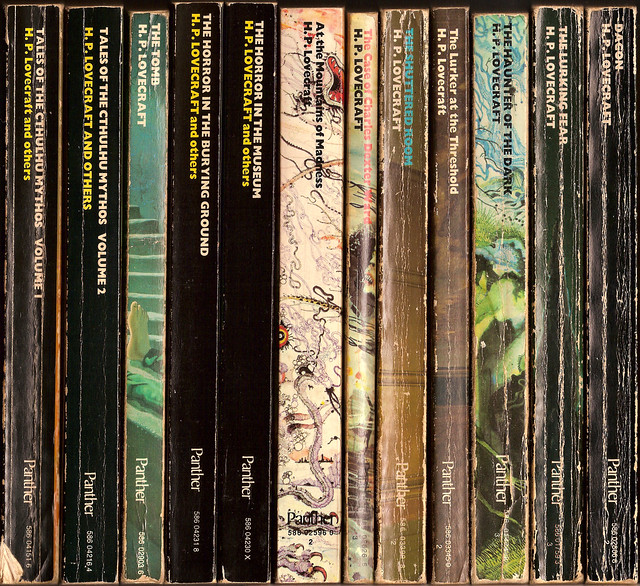
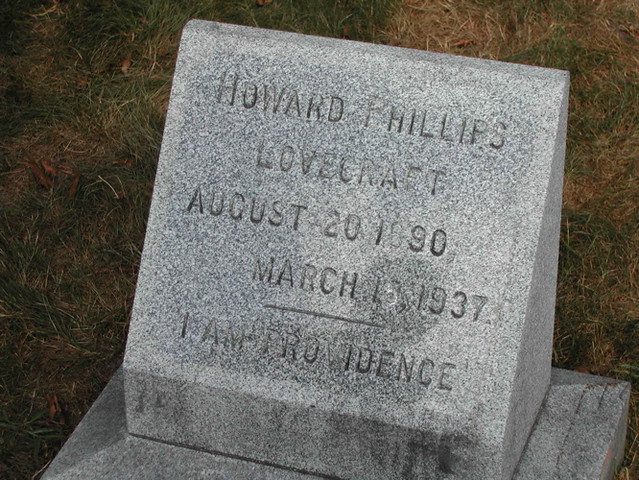
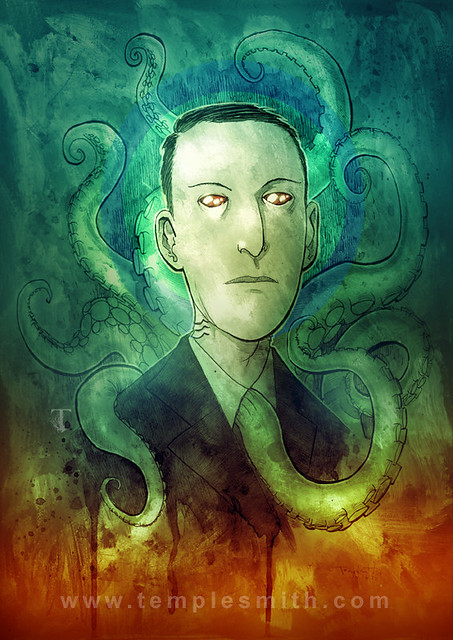
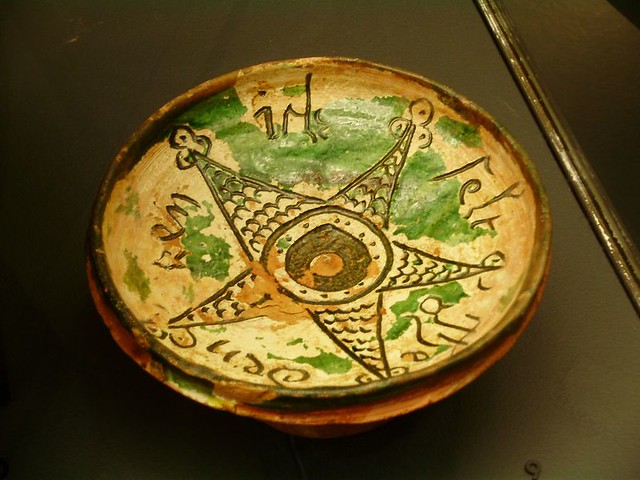
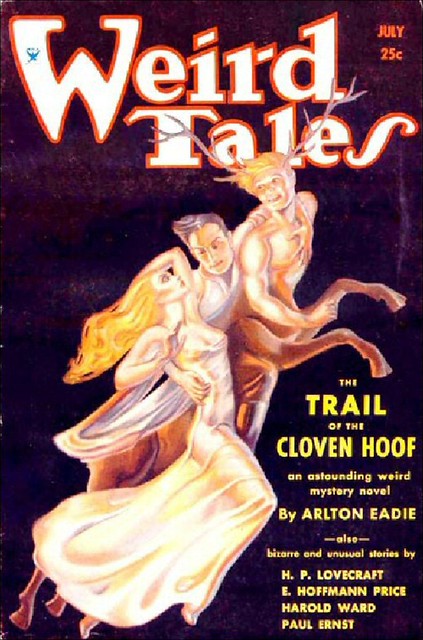

No comments:
Post a Comment